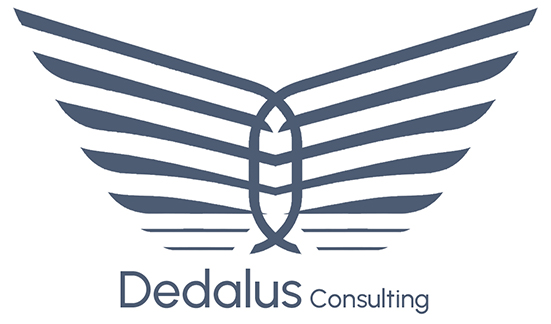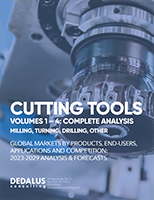The manufacturing of cutting tools is a complex endeavor and is touched by many industries from the materials preparation stage through the finishing stages of production. Some of these are plentiful and more easily sourced. Disruptions to supply chains can cause supply shortages, delays in production, or the complete cessation of operations.
From 2020-2022, the deficiencies across multiple supply chains were brought into stark relief, and although they have somewhat been compensated for, they are not fully resolved. Supply chain disruptions can have a devastating impact on businesses and industries, and examining supply chains across different sectors of industry can be complicated. Further exacerbating the issue is that disruptions in one sector can ripple through an entire supply network, creating impacts on multiple industries. Risk management and resilience should be key pillars of any machining business's strategy.
Materials Impacting the Cutting Tools Industry
The manufacturing of cutting tools is a complex endeavor and is touched by many industries from the materials preparation stage through the finishing stages of production. For example, some of the raw materials involved in the manufacture of cutting tools include:
- tungsten;
- cobalt (used as a binder);
- tantalum;
- high-speed steel;
- ceramics, particularly aluminum oxide and silicon carbide;
- cubic boron nitride; and
- synthetic (PCD) diamond.
For example, the most important raw material in the production of cutting tools remains tungsten, and over 80% of the world tungsten supply originates in China. In 2022, supply chain issues surrounding the sourcing of tungsten from China continued to cause major issues not only in production within the tooling industry directly but also on the demand side within end-user industries, particularly within the semiconductor industry and the automotive industry.
Supply chain disruptions will continue to be prevalent, and they are likely to increase in frequency and intensity due to new challenges being caused by the impacts of climate change, technological change, world events, and trade policies.
Thus, moving forward it is important for manufacturers and end-users to have strategies in place that will help them prepare for ongoing supply chain disruptions. Some initiatives being taken include building multinational partner networks that will be able to supplement supply when there is a shortage or disruption; automating processes on the factory floor that will continue to decrease material usage; and implementing better efforts to recycle and reuse waste materials.
Dedalus Consulting (www.dedalusconsulting.com) has recently published Cutting Tools: World Markets, End-Users & Competitors: 2024-2030 Analysis & Forecasts, the completely updated 12th edition of Dedalus’ in-depth research on the global cutting tools industry.
With background research on over 200 companies, the report also includes extensive information on the competitive environment. It details how manufacturers – from larger players like Sandvik, Iscar, Kennametal, and Mitsubishi to small regional players – are overcoming a slow market to achieve above average growth through aggressive mergers and acquisitions (M&A) strategies as well as focused organic growth.
Based on the company’s 25-year history of covering cutting tools, the report’s scope includes consumption value by year on over 20 regions/countries and 20 end-user industries (e.g., automotive, aerospace, automation, energy etc.) within each country. Data is broken down by country, product type (milling, turning, drilling, other), end-user demand, grade (e.g., tungsten carbide, diamond, cbn, ceramic, HSS), and indexable versus solid tools. This comprehensive four-volume, 500-page report has over 300 tables and graphs.
|
|
|
About Dedalus Consulting
Dedalus Consulting is a privately owned and independently operated market research publisher and consultancy.
In 1996, Dedalus Consulting emerged as a pioneering technology-driven consultancy. Founded with a singular focus on delivering unparalleled market research and competitive intelligence, our mission has always been clear: to provide high-value insights that empower our clients to navigate the dynamic landscapes of emerging and mature technology sectors./p>
Our clientele is as diverse as the industries we serve, ranging from Fortune 500 juggernauts to pioneering academic institutions. Whether you're shaping the future of technology or driving innovation, Dedalus Consulting is your indispensable partner in navigating the complexities of today's high-tech landscape.

